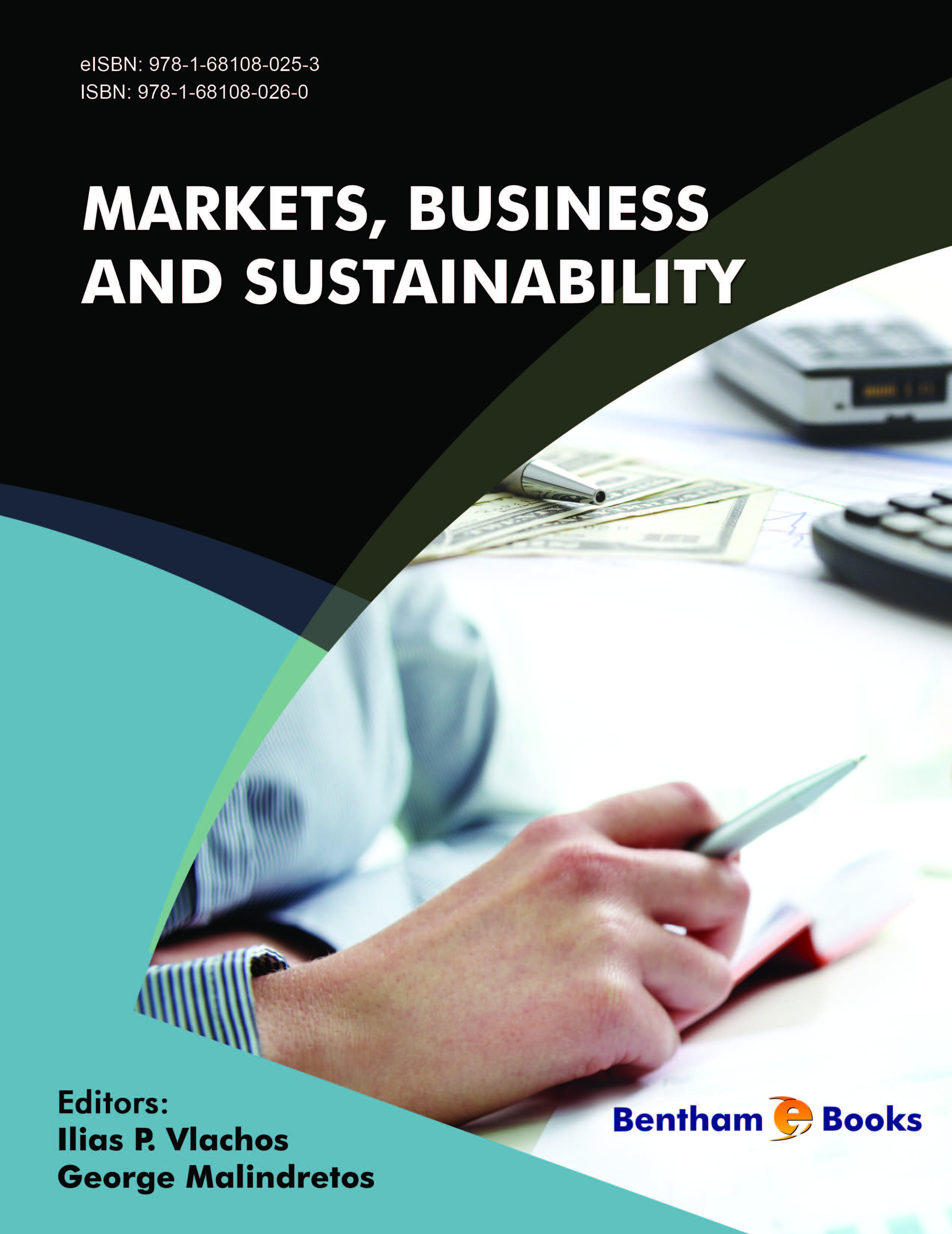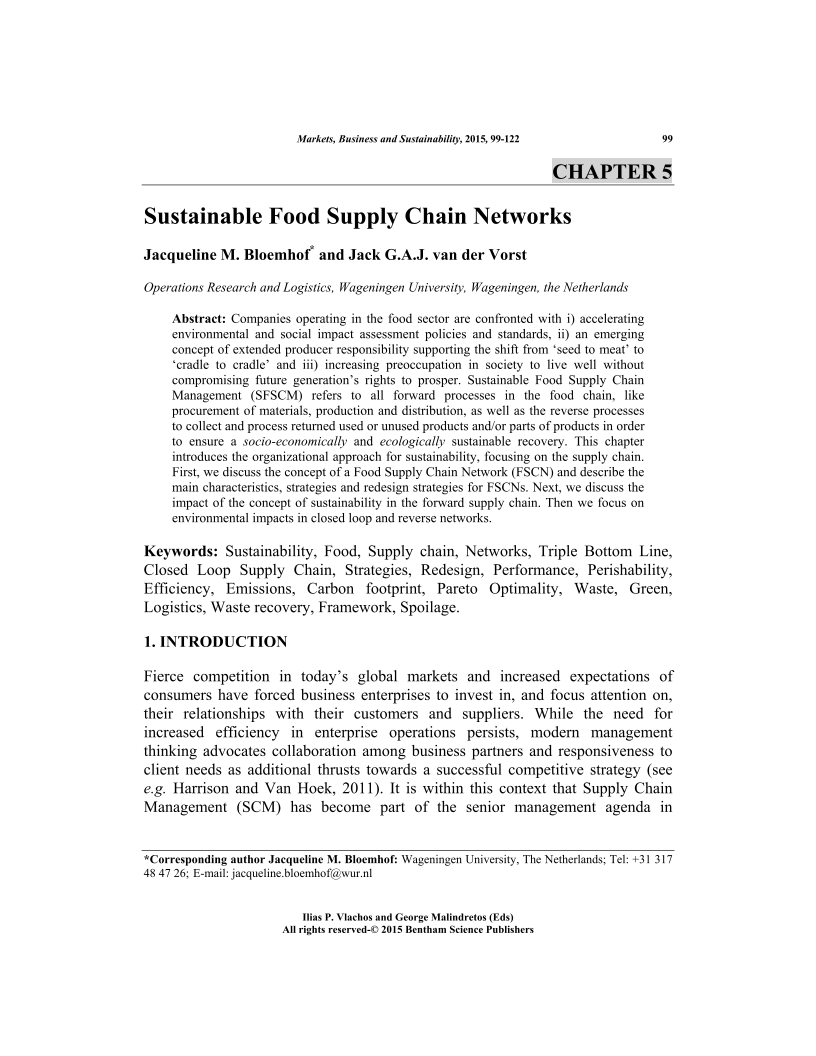Sustainable Food Supply Chain Networks

- Authors: Jacqueline M. Bloemhof1, Jack G.A.J. van der Vorst2
-
View Affiliations Hide Affiliations1 Wageningen University, The, Netherlands. 2 Wageningen University, The, Netherlands.
- Source: Markets, Business and Sustainability , pp 99-122
- Publication Date: March 2015
- Language: English
Sustainable Food Supply Chain Networks, Page 1 of 1
< Previous page | Next page > /docserver/preview/fulltext/9781681080253/chapter-5-1.gif
Companies operating in the food sector are confronted with i) accelerating environmental and social impact assessment policies and standards, ii) an emerging concept of extended producer responsibility supporting the shift from seed to meat to cradle to cradle and iii) increasing preoccupation in society to live well without compromising future generations rights to prosper. Sustainable Food Supply Chain Management (SFSCM) refers to all forward processes in the food chain, like procurement of materials, production and distribution, as well as the reverse processes to collect and process returned used or unused products and/or parts of products in order to ensure a socio-economically and ecologically sustainable recovery. This chapter introduces the organizational approach for sustainability, focusing on the supply chain. First, we discuss the concept of a Food Supply Chain Network (FSCN) and describe the main characteristics, strategies and redesign strategies for FSCNs. Next, we discuss the impact of the concept of sustainability in the forward supply chain. Then we focus on environmental impacts in closed loop and reverse networks.
-
From This Site
/content/books/9781681080253.chapter-5dcterms_subject,pub_keyword-contentType:Journal -contentType:Figure -contentType:Table -contentType:SupplementaryData105

